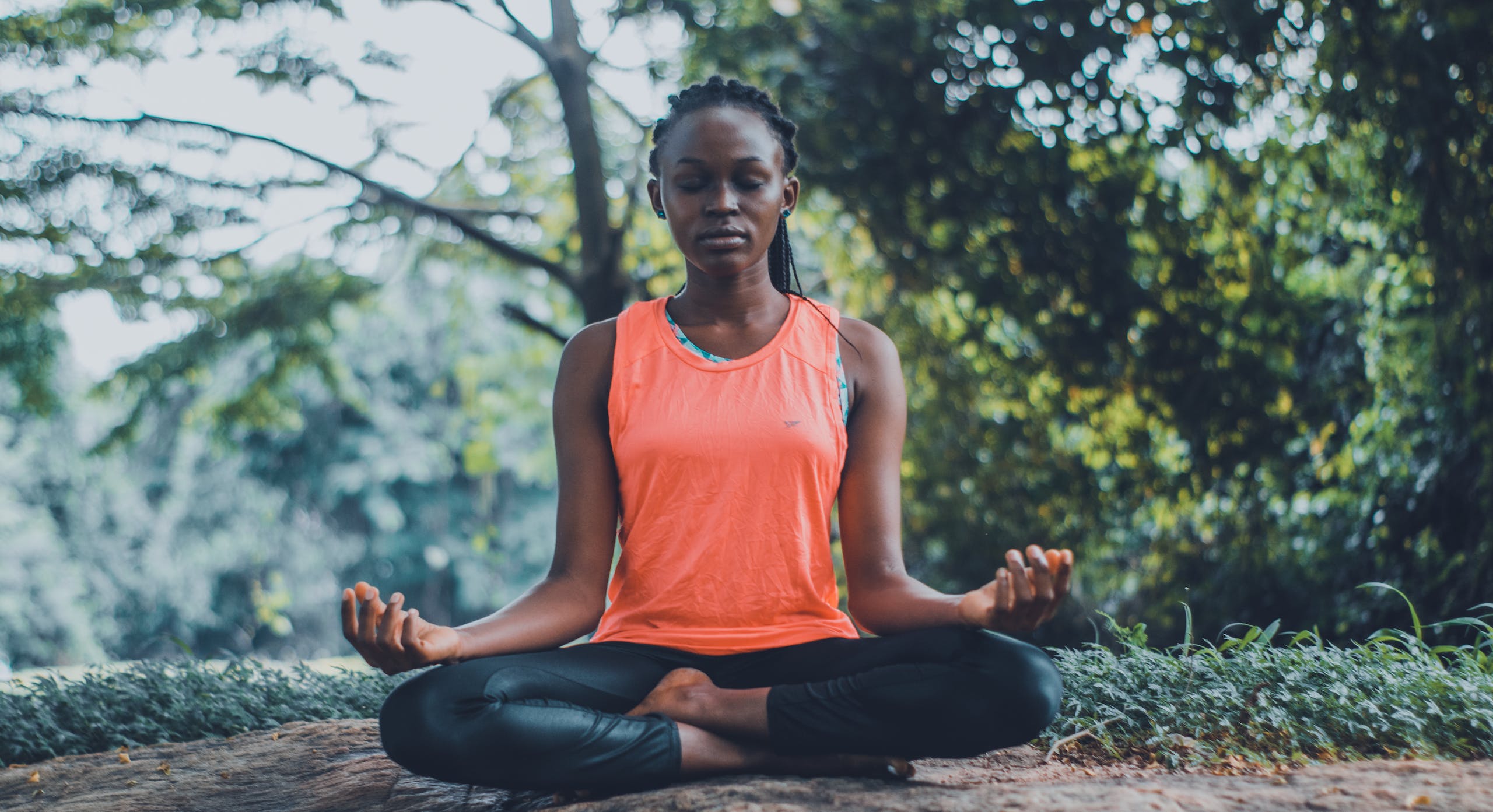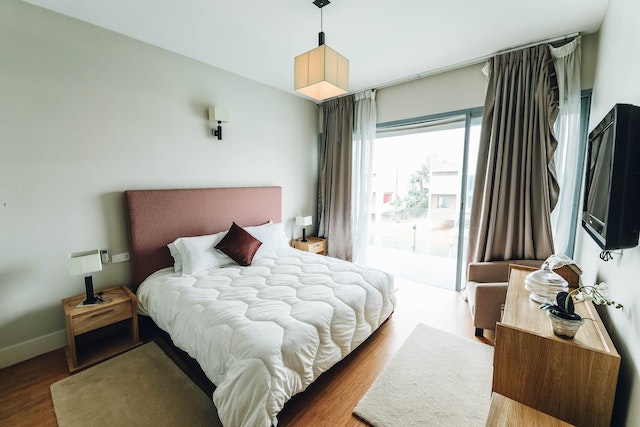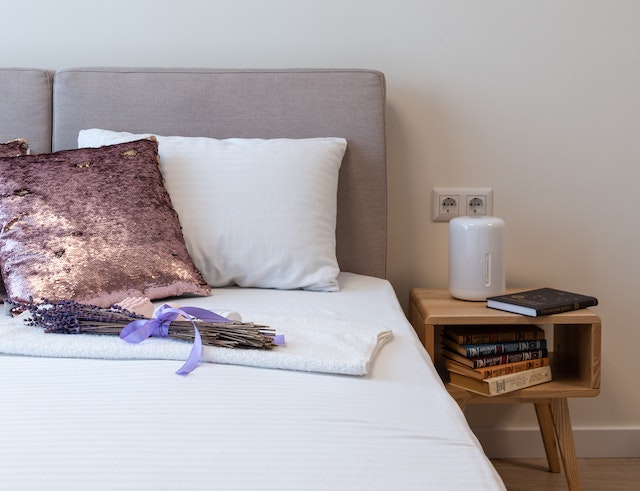The Best Sleep-Promoting Techniques: From Meditation To Deep Breathing Exercises
There are some affiliate links below, but they are all products I highly recommend. For more info, view my disclosure here.
Are you tired of waking up feeling groggy and exhausted? Do you struggle to fall asleep at night? If you answered yes to either of these questions, you’re not alone. Many people struggle with getting a good night’s sleep, but fortunately, there are several sleep-promoting techniques that can help.
From meditation to deep breathing exercises, there are a variety of techniques you can try to help you relax and fall asleep more easily. We’ll explore some of the best sleep-promoting techniques out there and offer tips on how to incorporate them into your daily routine.
So if you’re ready to start sleeping better and feeling more rested, read on to learn more!

Relaxation Techniques to Reduce Stress and Anxiety
You can easily reduce your stress and anxiety levels by practicing relaxation techniques like deep breathing exercises and meditation. When you’re feeling anxious or stressed, your body releases hormones such as cortisol and adrenaline, making it difficult for you to relax and sleep. However, relaxation techniques can help you to calm your mind and promote better sleep.
Deep breathing exercises are one of the simplest relaxation techniques you can practice. Find a quiet place to sit or lie down, and take deep breaths in through your nose and out through your mouth. Focus on your breathing and try to clear your mind of any thoughts. You can do this for just a few minutes or for as long as you need to feel relaxed.
Meditation is another effective relaxation technique that can help you to reduce stress and anxiety. Sit or lie down in a comfortable position, and focus on your breath or a particular sound or word. You may find it helpful to use a guided meditation app or video to help you get started.
With regular practice, you’ll be able to quiet your mind and promote better sleep.
Establishing a Consistent Sleep Schedule
To get your body into a healthy sleep routine, it’s important to establish a consistent schedule for when you go to bed and wake up each day. This means going to bed and waking up at the same time every day, even on weekends.
Your body has an internal clock that regulates your sleep-wake cycle, and sticking to a consistent schedule helps to keep this clock in sync. When you establish a consistent sleep schedule, your body learns when it’s time to wind down and prepare for sleep.
You can start to develop a relaxing bedtime routine, such as taking a warm bath, reading a book, or practicing meditation or deep breathing exercises. Waking up at the same time each day helps to regulate your energy levels and keep you alert throughout the day.
While it may be tempting to stay up late or sleep in on the weekends, doing so can disrupt your body’s natural sleep-wake cycle and make it harder to fall asleep at night. By sticking to a consistent sleep schedule, you can improve the quality of your sleep and wake up feeling refreshed and energized each day.

Creating a Comfortable Sleep Environment
As you enter your bedroom, imagine a peaceful oasis where you can relax and unwind from the day. Your environment can have a significant impact on the quality of your sleep, so it’s essential to create a comfortable space that promotes relaxation.
Start by choosing a mattress and pillows that provide adequate support for your body and feel comfortable to you. Invest in high-quality bedding that feels soft and cozy against your skin.
In addition to comfortable bedding, consider the temperature and lighting in your room. Keep the temperature cool and use blackout curtains or an eye mask to block out any unwanted light. This will help create a dark, quiet environment that’s conducive to sleep. You may also want to use a white noise machine or a fan to drown out any external noises that could disrupt your sleep.
Consider any distractions that could be keeping you from falling asleep. Remove any electronics from your bedroom, including TVs, laptops, and cell phones. The blue light emitted by electronics can interfere with your sleep patterns. Instead of scrolling through social media before bed, try reading a book or practicing relaxation techniques like deep breathing exercises or meditation.
By creating a comfortable sleep environment, you can promote restful, rejuvenating sleep and wake up feeling refreshed and energized.
Limiting Screen Time Before Bed
Limiting screen time before bed can improve the quality of your sleep. This is because the blue light emitted by electronic devices, such as smartphones, laptops, and tablets, can disrupt your body’s natural sleep-wake cycle.
Exposure to blue light at night can suppress the production of melatonin, a hormone that regulates sleep, making it harder for you to fall asleep and stay asleep. To limit your exposure to blue light before bed, try to avoid using electronic devices for at least an hour before bedtime.
Instead, engage in relaxing activities that can help you unwind, such as reading a book or taking a warm bath. If you must use electronic devices, consider using blue light filters or apps that can adjust the color temperature of your screen to reduce the amount of blue light emitted.
By limiting your screen time before bed, you can improve the quality of your sleep and wake up feeling more rested and refreshed. Make it a habit to disconnect from your electronic devices before bedtime and create a calming bedtime routine that can help you relax and prepare for a good night’s sleep.
Incorporating Exercise into Your Daily Routine
Incorporating exercise into your daily routine can significantly improve your overall health and well-being. Exercise not only helps you maintain a healthy weight, but it also helps improve your mood, boosts your energy levels, and reduces stress and anxiety.
When it comes to promoting restful sleep, exercise can play a crucial role in helping you fall asleep faster and stay asleep longer. Studies have shown that regular exercise can help improve the quality of your sleep. Exercise has been shown to increase the amount of deep sleep you get, which is the most restorative type of sleep that allows your body to repair and regenerate.
Exercise can help regulate your body’s internal clock, or circadian rhythm, which can improve your sleep-wake cycle and help you feel more alert during the day.
Incorporating exercise into your daily routine doesn’t have to be complicated or time-consuming. Even just 30 minutes of moderate exercise, such as brisk walking, cycling, or swimming, can have a significant impact on your overall health and sleep quality. The key is to find an activity that you enjoy and make it a regular part of your routine.
By doing so, you’ll not only improve your physical health, but you’ll also reap the benefits of a good night’s rest.

So there you have it, a variety of techniques to promote restful sleep and combat insomnia.
Remember, relaxation techniques like meditation and deep breathing exercises can help reduce stress and anxiety, which can interfere with sleep.
Establishing a consistent sleep schedule and creating a comfortable sleep environment can also improve the quality of your sleep.
Limiting screen time before bed and incorporating exercise into your daily routine can help regulate your body’s natural sleep-wake cycle.
Try incorporating one or more of these techniques into your routine and see how it improves your sleep.
Sweet dreams!






